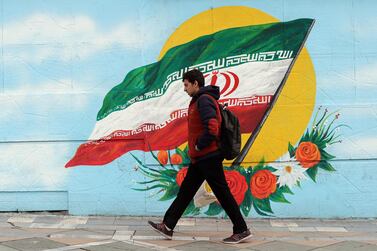Canada’s Iranian community continues to mourn the loss of dozens of students and researchers in a Ukrainian Airlines plane crash in Iran, with hundreds attending vigils across the country for the victims.
Families were left grief-stricken by the disaster, which was compounded by their inability to travel to Iran to gather the remains of their loved ones or attend their funerals, with many flights to Tehran cancelled due to ongoing tensions in the Middle East.
The outpouring of grief at vigils and on social media came as more details about the victims emerged. Newlywed couples, university students and professors, and families returning from winter holidays were all among the 57 Canadians believed to have perished in the crash.
“The good thing we see is that the community has come together,” said Younes Zangiabadi, the research director at the Iranian Canadian Congress, who knew nine of the victims and helped organise a vigil in Toronto.
“Despite the differences, some are students, some refugees, some fled for political reasons, others so they can have a higher quality of life, the fact that everyone is coming together and sharing support is good.”
Flight PS752 crashed shortly after leaving Imam Khomeini airport in Tehran, killing all 176 people on board. More than three quarters of them were travelling to Canada.
Iran on Saturday admitted that its military shot down the aircraft "unintentionally", confirming a scenario first raised by Prime Minister Justin Trudeau, citing intelligence reports.
Mr Zangiabadi said many students travelled on Ukrainian Airlines because there were no direct flights to and from Canada, which severed diplomatic relations with Tehran in 2012.
The Tehran-Kiev-Toronto route is the most affordable for students, as flights via the UAE, Turkey, and the EU are much more expensive.
“To be honest, when we heard the news we knew that there would be many students on the plane,” he said.
“It was very upsetting and we were all just waiting to see the names come out, and we waited for hours and hours, he added.
“Then the names started coming out, and it was just awful to see the names of people that we knew personally.”
The grief of families in Canada has been compounded by the cancellation of many flights home, preventing them from attending the funerals of loved ones or retrieving their remains. The absence of Canadian consular services has made the task even more difficult.
The academic community in Canada was left reeling by the tragedy, with universities across the country – in Alberta, Ontario, Quebec, British Columbia and Nova Scotia – issuing condolences for the victims who studied in institutions in most provinces.
“I know many of your universities have lost students, faculty, researchers, graduates,” said Paul Davidson, the president of Universities Canada, an association representing colleges around the country.
“The loss of any life is tragic, but the loss of so many bright, talented and engaged members of the Canadian academic community at once is utterly devastating.”
Uncertainty about the cause of the crash before Iran admitted responsibility had further unsettled members of the community and prompted demands for an impartial investigation to establish what happened and provide closure for the grieving families.
“I was talking to one of the family members yesterday at the vigil and what she was telling me was that all we want to know is what actually happened, and we cannot be at peace until we find out how our loved ones lost their lives,” Mr Zangiabadi said.
Vahid Yucesoy, a specialist in Iranian and Turkish politics at the University of Montreal, said the Iranian-Canadian community feels “frustrated, powerless, and indignant” in the wake of the disaster.
“Many of them had left their homeland in pursuit of a better future in Canada and other countries in the West and were visiting their homeland,” he explained.








